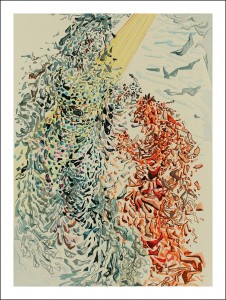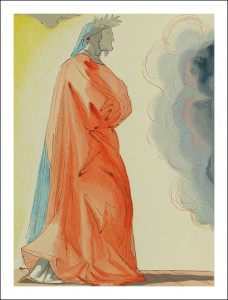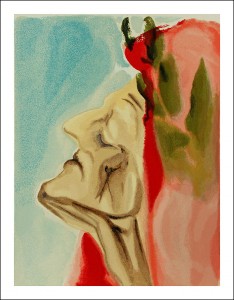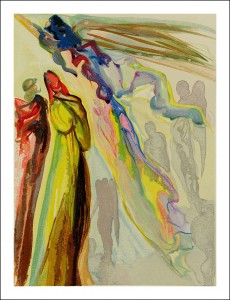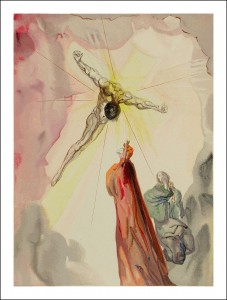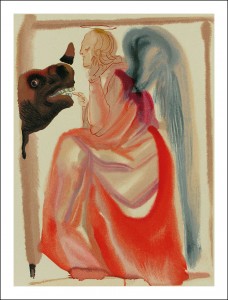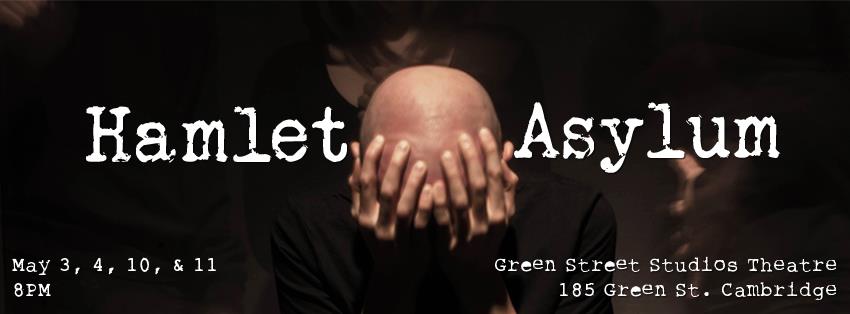April 30, 2013 at 12:31 pm
In his review of Roy Morris Jr.’s Declaring His Genius: Oscar Wilde in North America, Justin Beplate discusses Oscar Wilde’s trip to America, and the lasting effect that it had on his writing and personality. Here is an excerpt:
Wilde’s reception in America was uneven. If some were bemused by the colourful paraphernalia of aestheticism, others bristled at the suggestion that this export from Britain had anything to teach them about beauty and taste. Wilde was, by his own admission, a lame public speaker – but he was a born self-promoter. At a time when celebrity interviews were just beginning to take off in the US, Morris argues that ‘Wilde pioneered the way in which modern celebrities are created, cultivated, and commodified’. In his dealings with the press Wilde knew how to play the game, dispensing quotable copy and maintaining a genial air in the face of tiresomely repetitive questions. The same equanimity was extended to his hecklers, and many of those who came to jeer the ‘too too utterly utter’ spectacle of an overwrought fop in satin knee breeches with crushed velvet coat and green cravat found themselves disarmed by Wilde’s unflappable demeanour and genial good humour. It was less an ability to laugh at himself – his commitment to aestheticism was too sincere – than a willingness to deflect ridicule with humour, honed as the occasion required.
If America did not always know what to make of Wilde, the country was in many ways the making of him as an artist. He returned to England richer in pocket and, more importantly, in experience. The tour marked a divide between what Wilde himself designated ‘the Oscar of the first period’ (‘the gentleman who wore long hair and carried a sunflower down Piccadilly’) and what was to come. In the following decade Wilde would assiduously cultivate the Oscar of the second period, publishing the stories and plays that made him famous. His fall, when it came, was colossal. When The Importance of Being Earnest opened to wild acclaim on 14 February 1895, its author was the toast of London society. Less than two months later, having lost a disastrous libel claim against the 9th Marquess of Queensberry for imputations of homosexual conduct, Wilde was arrested on charges of gross indecency and later sentenced to two years’ hard labour. The physical and moral devastation of the trial and its fallout shattered him. Three years after his release, Wilde died as an impoverished and ignominious exile in Paris.
For the full review, visit bit.ly/ZQDWd6.
By mdimov
|
Posted in Academics, Great Personalities, Great Questions
|
Tagged America, Justin Beplate, literary, North, Oscar Wilde, review, Roy Morris
|
April 30, 2013 at 12:21 pm
The Core presents a review of Kurt Vonnegut's Letters, by Keith Miller. Vonnegut is not a writer directly studied in Core classes, however, his influence on the literary world is worth examining. Here is an excerpt:
Most of Vonnegut’s early writing is – despite his protestations about “genre-ism” – fairly easy to ghettoise as science fiction, though he is manifestly a “hard” SF writer (space ships, tentacles) who would like to be a “soft” one, exploring the Philip K Dick stuff about memory and identity. One of his richest themes – very notably in Slaughterhouse 5, which contains elements of SF, as well as memoir, realism and several other notes – is the conceit that we’re all somehow adrift, rogue cosmonauts in our own lives, an idea that is by no means confined to genre fiction (it is present in Proust, though clad there in white tie rather than a space suit).
...
The writ of this collection of letters runs from about 1950 until 2007, the year of Vonnegut’s death. It is not exactly packed with revelations. We don’t write to those we see every day; anthologies such as these are documents of absence, plaster casts of empty rooms – involuted autobiographies. It’s only when Kurt, teaching in Iowa, steps up his correspondence with Jane, his first wife, that we sense their relationship is amiss – sure enough, he soon notifies a friend that “something telepathic has busted between us”.
...
It is for their literary rather than their documentary value that these letters commend themselves, in the end. They have a directness and a consistency, a scruffy but ensnaring humanity, that I’ve never quite been able to find in Vonnegut’s fiction, either two decades ago as a refusenaut and psychonik, or over the past fortnight, researching this piece. Kurt seems by turns kind, engaged, imaginative, witty, self-deprecating (“I write with a big black crayon… grasped in a grubby, kindergarten fist,”) and – on various fronts – courageous.
For the full review, visit bit.ly/101d1Wt.
By mdimov
|
Posted in Academics, Great Ideas, Great Personalities
|
Tagged author, genre, Keith Miller, Kurt Vonnegut, letters, personality, review, writer
|
April 24, 2013 at 9:46 am
Here is where these great writers get their zest for reading:
- "Every man who knows how to read has it in his power to magnify himself, to multiply the ways in which he exists, to make his life full, significant, and interesting."
Aldous Huxley
- "Reading a book is like re-writing it for yourself. You bring to a novel, anything you read, all your experience of the world. You bring your history and you read it in your own terms."
Angela Carter
- "To acquire the habit of reading is to construct for yourself a refuge from almost all the miseries of life."
W Somerset Maugham
- "I think we ought to read only the kind of books that wound or stab us. If the book we're reading doesn't wake us up with a blow to the head, what are we reading for? So that it will make us happy, as you write? Good Lord, we would be happy precisely if we had no books, and the kind of books that make us happy are the kind we could write ourselves if we had to. But we need books that affect us like a disaster, that grieve us deeply, like the death of someone we loved more than ourselves, like being banished into forests far from everyone, like a suicide. A book must be the axe for the frozen sea within us. That is my belief."
Franz Kafka
For the full set of such quotes, visit bit.ly/10d7eNs.
By mdimov
|
Posted in Art, Core Authors, Future of the Book, Great Ideas, Great Personalities, Great Questions
|
Tagged Aldous Huxley, Angela Carter, book, drama, Franz Kafka, interest, motivation, reading, W Somerset Maugham
|
April 23, 2013 at 1:12 pm
Below is a list of important topics from lectures since CC106's last exam (not including the April 16th lecture and those after).
Important topics:
Ecology Lectures I and II: Biomes and Physical Ecology: (Prof. Schnieder)
- Ecology as concept- Biotic vs. abiotic traits of environment- Biome vs. biogeographic region- Levels of biological organization- Physical geography vs. biogeography- Ecological systems (population, community, ecosystem, biosphere)- Conditions conducive to high diversity of life in ecosystem- Reasons for climate variation- Coriolis effect- Hadley cells- Influence of wind on ocean currents and exchange of heat via ocean currents- Influence of topography on climate- Convergent evolution in environmentally similar but geographically separate regions.
- Traits that form major conditions of terrestrial vs. aquatic biomes- Wallace's line and six biogeographic regions- Relation of continental drift to biogeographic regions- Examples of biotic interchange (Bering land bridge, Panamanian land bride).
Chemical Ecology Lecture: (Prof. Atema)
- Chemical signals are everywhere in life, inside and outside our and their bodies.
- Currents are necessary to carry odors over any significant distance; this could vary from millimeters to kilometers.
- Smell and taste are the two primary sense organs to respond to chemical signals: smell interacts with odors in the free flowing medium (air or water); taste tests the stuff we eat to stimulate appetite and to avoid poisoning ourselves.
- The molecular receptors for smell and taste can be similar (because both function to interact with chemicals).
- The anatomy of smell and taste sense organs is very different, including the mouth map of the taste brain and the glomeruli in the smell brain.
Ecology III Lecture: Population Growth: (Prof. Schneider)
- Definition of a population.
- BD model of population size: essentially, births increase and deaths decrease population size.
- Per capita growth rate.
- Life Table.
- Life histories determine population growth rates.
- Populations grow multiplicatively, but limiting resources can cap population growth.
- Limits to population growth.
- Carrying capacity.
- Human population growth.
Reminders:
- Professor Schneider sent out an email this morning with the Arctic Ice assignment attached. That will be due this coming Monday in your discussions. You may work with a parter on this if you would like. Let me or Nate know if you have any questions regarding this assignment.
- Nate and Gayle will hold a review for the final but that is a couple weeks away from now. They will send along more information about that when it gets closer.
Interesting Science Article/News:
- Fish's DNA May Explain How Fins Turned to Feet, New York Times: nyti.ms/Zmpidx
By mdimov
|
Posted in Academics, Announcements, Core Lecturers, Curriculum, General Announcements
|
Tagged CC106, exam, guide, hint, information, lecture, preparation, study, test, topic, update
|
